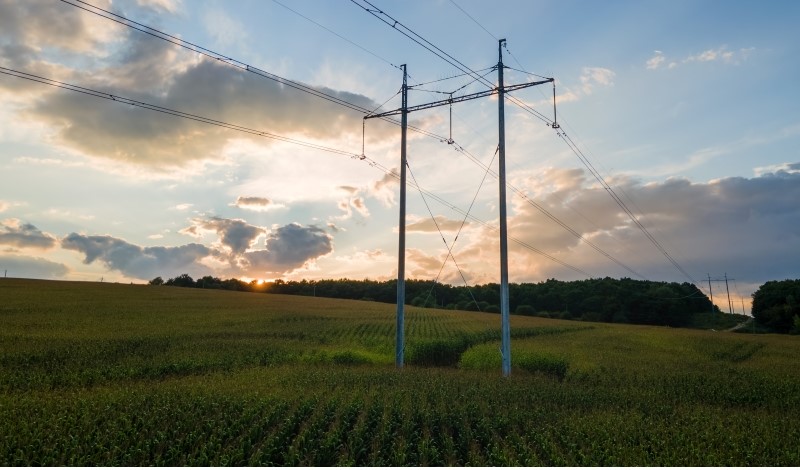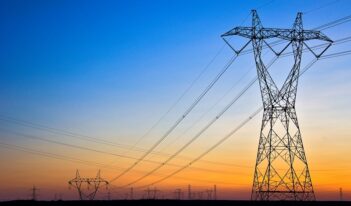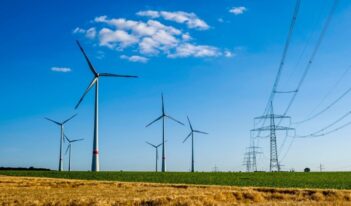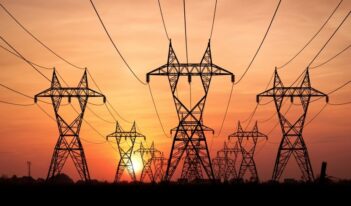
Partisanship presents a threat to and a possible solution for streamlining energy infrastructure development.
Streamlining energy permitting has been on Congress’ front burner for some time, but progress on the issue has been painfully incremental. The 2021 Infrastructure Investment and Jobs Act strengthened the federal government’s power to override state opposition to new transmission lines, but it retained a lengthy, unwieldy process for doing so that the Biden Administration has only recently initiated. Last year, Congress tweaked the environmental review process under the National Environmental Policy Act (NEPA) in minor ways.
But even with massive increases in electricity demand looming, legislation to significantly streamline the permitting process for energy infrastructure has eluded Congress. The massive subsidies for new energy development created by the 2022 Inflation Reduction Act (IRA) have put even more pressure on an old permitting system that was not built for speed.
Now comes the Manchin-Barrasso permitting bill—S.4753—which aims to speed permitting and reduce regulatory barriers to all kinds of new energy projects. It is a sort of ideological pork barrel bill, and a fascinating attempt at logrolling—that is, the practice of loading a bill with provisions that each side of the partisan divide wants in the hope that a enough members value “what we want” more than they hate “what they want.”
Manchin-Barrasso would make it easier to lease federal land for fossil fuel production and geothermal, wind, and solar energy production. It does something similar for offshore oil drilling and offshore wind farms. It would shorten the process by which the Federal Energy Regulatory Commission (FERC) can override state opposition to new high voltage transmission lines, but it would also make it more difficult for utilities to allocate the costs of new lines to some of the ratepayers who enjoy the environmental benefits of those lines.
The Manchin-Barrasso’s logrolling is part of a long congressional tradition, but it was easier in the past when bitter partisanship was not the norm. In recent years, energy politics has been plagued by what political scientists call “negative partisanship,” an attachment to one’s party mainly as a vehicle for stopping the other party from taking power or pursuing its agenda. The paralyzing effects of negative partisanship are amplified by both the online media environment and the fact that most congressional seats are safely in the hands of one party or the other.
Today, most members of each party see the other’s members as “close-minded, unintelligent, dishonest, and immoral.” At the same time, most members of Congress face a greater risk of losing a primary than a general election. So, members of Congress attend to the wishes of the intensely negative partisans who vote in primary elections, some of whom hate to see the other side get “a win” more than they love achieving their own policy goals.
The Manchin-Barrasso bill poses a sort of natural experiment of the possibility of enacting ideological pork barrel legislation in today’s negatively partisan environment.
It is not unprecedented. The IRA itself subsidized both clean and dirty energy, mostly because it needed U.S. Senator Joe Manchin’s vote to pass in the face of unanimous Republican opposition in Congress. The IRA was harshly criticized by negative partisans on both ideological poles. Fossil fuel booster Alex Epstein called it “one of the most corrupt laws in U.S. history.” Former Bernie Sanders speechwriter David J. Sirota called it “the worst climate bill ever passed.”
The IRA did pass—but barely—thanks to Democratic Party control of both houses of Congress. So, might the logrolling approach help the Manchin-Barrasso permitting bill pass a Republican-led House and Democrat-led Senate?
On the one hand, there are influential voices on the right who deride policy support for renewable energy as “woke capitalism,” and both Donald Trump and J.D. Vance speak of green energy as a “scam.” On the other hand, there are influential online voices on the left who see the elimination of all fossil fuels as a moral imperative, and for whom the Manchin-Barrasso bill is a nonstarter. Progressive NGOs such as Common Dreams and the Natural Resources Defense Council have panned the bill as a dirty deal and a giveaway to the fossil fuel industry.
Still, some progressive groups support the bill. And it may be that divisions on the left reflect disagreement over what drives change in energy markets. If you believe that climate progress comes from making clean energy cheaper so that it out-competes dirtier alternatives, then the Manchin-Barrasso bill may look good to you. Several of its provisions will help inexpensive renewable energy projects get financed and built, and its provisions targeting geothermal power and minerals development give a leg up to industries that might play crucial roles in helping the U.S. economy reach net-zero carbon emissions.
If on the other hand, if you believe that real climate progress comes mainly from regulatory mandates, or that the oil and gas and electric utility industries will always find ways to ensure that clean energy never wins out in the end, then the Manchin-Barrasso bill may look like a step backward. This is more of a zero-sum view of climate progress.
I tend to fall into the former group, but reasonable people can differ about these things. For example, some credit the Environmental Protection Agency’s Mercury and Air Toxics Standards with reducing the number of coal-fired power plants in the U.S. fleet, thereby improving our air quality and reducing carbon emissions. But the weight of the evidence suggests that more credit ought to go to the cheap natural gas of the early 2000s and the even cheaper wind and solar power of the 2010s and 2020s.
It is possible that Congress will avoid this political dilemma by trying to pass Manchin-Barasso after the election, in a lame duck Congress. But if it comes up before the 2024 election, the outcome will tell us something about which matters more to the voters who control members’ electoral fates—getting some of the energy policies that they want or stopping the other side from getting some of the energy policies it wants.
Time will tell.




